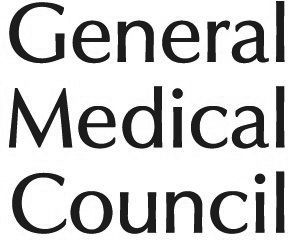Dr Shameer Mehta, Consultant Gastroenterologist
Dr Shameer Mehta
Consultant Gastroenterologist
Dr Shameer Mehta MBBS BSc (Hons) MRCP AFHEA MD(Res)
Consultant Gastroenterologist
Dr Shameer Mehta
Consultant Gastroenterologist MBBS BSc (Hons) MRCP AFHEA MD(Res)


Areas of expertise
- Inflammatory bowel disease (IBD)
- Gastroscopy
- Clinical nutrition
- Irritable bowel syndrome
- Pelvic radiation disease



Recommendations for Dr Mehta
These recommendations are for information purposes only. Doctors providing recommendations do so in good faith and are not responsible for clinical outcomes.


















Recommended by:
Make an appointment
Address
-
GI Doctors
116 Harley St, London, W1G 7JL
-
Cleveland Clinic London
33 Grosvenor Place, Belgravia, SW1X 7HY
-
London Digestive Centre
41 Welbeck St, Marylebone, London, W1G 8EA
-
Cleveland Clinic Portland Place Outpatient Centre
24 Portland Place, London, W1B 1LU
-
Cleveland Clinic Moorgate Outpatient Centre
55 Moorgate, Coleman Street, London, EC2R 6LL
-
Telephone or video consultation
Virtual
About Dr Shameer Mehta
GMC number: 6077083
Year qualified: 2003
Place of primary qualification: Guy’s King’s and St. Thomas’ School of Medicine
Dr Shameer Mehta is a Consultant Gastroenterologist at University College London Hospital, where he has been working since 2015, and Honorary Associate Professor at University College London. He is a highly skilled and experienced gastroenterologist with clinical interests in inflammatory bowel disease (Crohn’s disease and ulcerative colitis), gastroscopy and colonoscopy, clinical nutrition, irritable bowel syndrome, pelvic radiation disease, short bowel syndrome and intestinal failure. He also cares for patients with coeliac disease, stomach ulcers and anaemia amongst others. Whilst leading the multidisciplinary nutrition team at UCLH, he also provides specialist input to a range of patients under other medical teams.
Dr Mehta qualified in medicine in 2003, having also obtained a BSc with Honours in Molecular Medicine from the University of London. He then completed an advanced training programme in the management of patients with complex inflammatory bowel disease (Crohn’s disease and ulcerative colitis) and intestinal failure at three separate London teaching hospitals before undertaking a joint fellowship in translational science research at the Blizard Institute, London and medical education at Queen Mary University of London. During this time, he became a fellow of the Higher Education Academy in recognition of his postgraduate teaching work. His MD investigated the development of intestinal fibrosis in patients with Crohn’s disease.
Dr Mehta maintains a strong interest in research and education and has a track record of delivering high-quality research outcomes in a range of settings. He has given multiple national and international presentations. He takes time out of his busy clinical practice for research and education – he believes keeping up to date in this way makes him a better physician. He is also a passionate advocate for shared decision making between patient and physician.
Areas of expertise
- Abdominal bloating
- Acid reflux
- Clinical nutrition
- Coeliac disease
- Colitis (ulcerative colitis)
- Colonoscopy & polypectomy
- Conditions causing diarrhoea
- Constipation
- Crohn’s disease
- Diarrhoea
- Dyspepsia
- Gastro-intestinal side effects of cancer treatment
- Gastro-oesophageal reflux disease (GORD) or reflux
- Gastroscopy
- Heartburn
- Inflammatory bowel disease (IBD)
- Intestinal failure
- Irritable bowel syndrome (IBS)
- Malnutrition
- Pelvic radiation disease
- Percutaneous endoscopic gastrostomy (PEG)
- Short bowel syndrome
- Stomach/abdominal pain
- Upper gastrointestinal endoscopy
Frequently asked questions
Why do you do what you do?
I have always found the digestive system fascinating, even as a junior doctor. It is incredibly complex and relies on a fine balance and interplay between a variety of factors, including gut bacteria, immune function, the gut-brain axis and our environment. This balance is important for overall health but can be disturbed in many ways leading to unpleasant symptoms or disease. I enjoy the challenge of diagnosing and treating conditions as quickly as possible to alleviate patients’ symptoms and restore wellbeing.
What are the common symptoms that your patients tend to present with?
My patients can present with a wide range of symptoms. These include a change in bowel habit, abdominal pain, bloating and rectal bleeding. Some patients can also be referred on the basis of abnormal tests, such as anaemia, despite feeling relatively well.
What are the treatments that you're able to offer your patients?
The treatment plan I offer depends entirely on the underlying problem and my patient. For example, there are a number of effective medicines available to treat patients with inflammatory bowel disease (Crohn’s disease and ulcerative colitis) but a number of non-drug therapies can be effective too, such as nutritional therapy. Other conditions may require different therapies (e.g. lifestyle changes, medicines, endoscopic therapy) and I am lucky enough to have access to a range of treatments in my London-based practice. I believe it is important to tailor treatment plans to each patient and agree on a course of action together.
What are your areas of sub-specialist interest?
I have broad experience in general gastroenterology but my subspecialist areas are inflammatory bowel disease, clinical nutrition, irritable bowel syndrome and pelvic radiation disease (PRD). PRD generally results in a wide range of unpleasant gut symptoms as a result of previous cancer treatments (e.g. radiotherapy). Patients often struggle for years before they are diagnosed and so helping people with this condition can be very satisfying.
Professional memberships






Articles by Dr Shameer Mehta
Intestinal fibrosis in Crohn’s disease: role of microRNAs as fibrogenic modulators, serum biomarkers, and therapeutic targets
Nutritional Status and Quality of Life in Hospitalised Cancer Patients Who Develop Intestinal Failure and Require Parenteral Nutrition: An Observational Study.
Serum Scoring and Quantitative Magnetic Resonance Imaging in Intestinal Failure-Associated Liver Disease: A Feasibility Study.
Epithelial down-regulation of the miR-200 family in fibrostenosing Crohn's disease is associated with features of epithelial to mesenchymal transition
Refeeding syndrome in adults receiving total parenteral nutrition: An audit of practice at a tertiary UK centre.

































